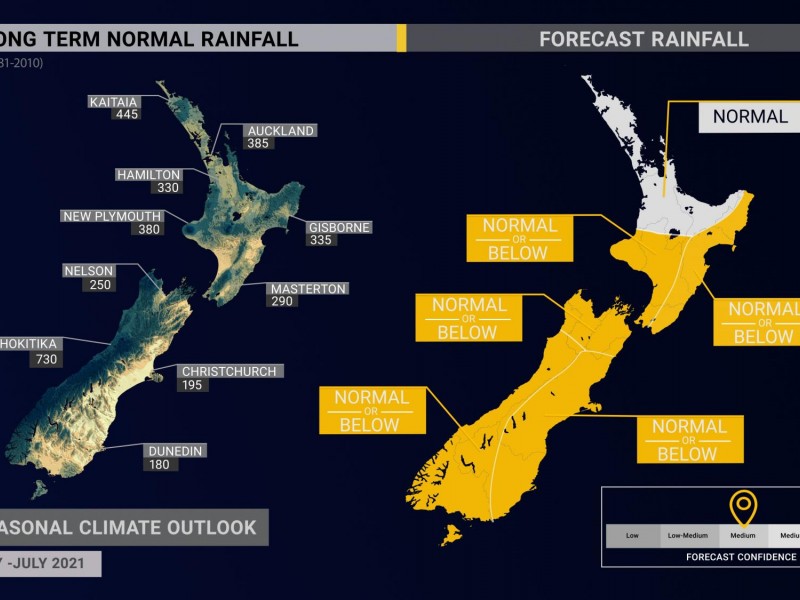Dr Nick Cradock-Henry is a senior scientist at Manaaki Whenua – Landcare Research.
He said the prospect of higher-than-average temperatures and lower rainfall than normal showed the challenges faced by primary industries and rural communities.
“Farms are often set up to cope with one, or even two, ‘difficult years.’ Repeated, or prolonged dry conditions, however, exacerbate existing vulnerabilities, placing undue pressure on household finances, personal relationships, livestock, and other aspects of the production system," he said.
Cradock-Henry said with climate change, Aotearoa was likely to face hotter, drier conditions, and it was important to understand the ways rural communities were exposed in order to make sure recovery after drought was possible.
“Resilience is often described in terms of the ability to withstand or recover from shock. When the fundamental social, economic, and environmental capitals on which these communities depend becomes slowly eroded through successive or prolonged dry conditions, recovery can be difficult," he said.
Economist Bill Kaye-Blake agreed with Cradock-Henry about resilience and the effects of climate change. He said rural communities were resilient in different ways, with some communities relying on strong social networks, while others could draw more on those around them.
“We see this in the way people react to drought. In the 2019-2020 drought, we saw evidence that farmers with money solved their problems by buying in feed. By contrast, farmers with strong social networks helped each other connect with sources of feed,” he said.
He noted the biggest challenges were often for people who were a bit more isolated. He said people on lifestyle blocks may have a few animals but may not be well connected in the farming community and could struggle to find supplemental feed for their animals.
Readylawn owner Roger Morgan is thankful for irrigation but said unless they get some decent rain soon, they were going to be “in a bit of strife”.
"We’ve already missed the natural autumn growth period so it’s dry and cold. We’re in a severe moisture deficiency period and we need rain,” he said.
Morgan said as far as the dry summer went, those with irrigation fared well.
"The dry warm weather meant a good season and harvest period for the team at Readylawn."
He said Christchurch sports fields were very dry, which would cause a deterioration later in the season as grass cover was poor.
"If we have a dry winter, that will affect the groundwater levels and could put more stress on the environment in the spring."
NIWA will be releasing its official winter forecast at the end of May.


